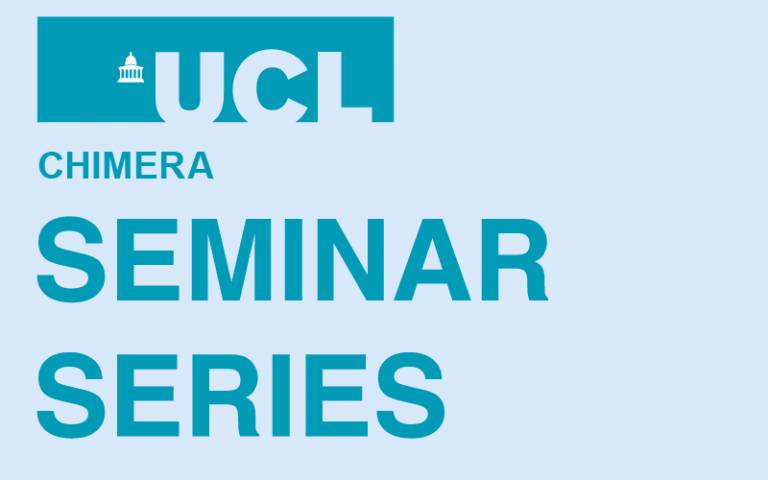CHIMERA webinar: sktime, a toolkit for machine learning with time series
22 September 2021, 3:00 pm–4:00 pm

with Professor Tony Bagnall and Markus Löning, University of East Anglia
Event Information
Open to
- All
Availability
- Yes
Organiser
-
CHIMERA (Collaborative Healthcare Innovation through Mathematics, EngineeRing and AI)
Location
-
Zoom webinarOnlineOnlineOnline
Abstract
sktime is an open source scikit learn compatible python toolkit for learning from time series. It originated as a project at the Turing Institute as part of the Tools, Practices and Systems programme in 2018. Techniques for learning from time series have been developed in a range of disciplines, including: statistics; machine learning; signal processing; econometrics; and finance. Each community has a favoured set of tools and accepted default workflow, and historically the development and evaluation of algorithms has been siloed, despite similarity between tasks. Frequently, tasks are reduced from one type of problem (e.g. forecasting) to another (e.g. regression, classification or clustering) without reference to the bespoke state of the art algorithms developed specifically for the new task. sktime aims to link communities by providing a unified interface for related time series tasks such as forecasting, classification, clustering, regression, annotation, anomaly detection and time to event modelling. We will demonstrate the structure and basic usage of sktime, with an emphasis on the process of linking tasks through reduction.
Tony’s specific research interest lies in time series classification. He will provide a brief summary of our recently published algorithm, HIVE-COTE (version 2.0) and describe its usage in sktime for two case studies: classification of insects based on reconstructed audio and the non-invasive detection of forged spirits through spectrography. He will then introduce the new sktime sister package sktime-neuro that came out of a 2021 Goggle Summer of Code project. He will show how the unified interface of sktime easily allows the application of state of the art algorithms developed in machine learning, such as HIVE-COTE, to the specific problem of EEG classification. Finally, Markus will present the results from a Data Study Group at The Alan Turing Institute in collaboration with the Great Ormond Street Hospital. The purpose was to explore how bed-side monitor patient data can be used to inform the removal of a breathing tube (i.e. ‘extubation’) in intensive care units. Data included multivariate panel data consisting of patients' vital signs recorded every 5 seconds (including heart rate, respiratory rate, blood pressure, etc.), relevant demographic information, and flags for the time of attempted extubation and whether or not the attempt was successful. We evaluated the effectiveness of different time series classification techniques provided in the sktime toolkit to predict whether an extubation attempt was successful (a failed attempt was defined as re-intubation within 48 hours of attempted extubation).
Speakers
Tony Bagnall is a Professor of Computer Science at the University of East Anglia. He completed his MSc by research on applying genetic algorithms to cryptanalysis in 1995 and his PhD on reinforcement learning algorithms for market simulations in 1999. More recently, his research interests have focussed on time series machine learning, with a specific focus on time series classification and clustering. He is particularly keen on comparing algorithms and is striving to normalise the term “bake off” in the machine learning community. He is one of the founders of sktime and remains closely involved as a core contributor and community council member.
Markus Löning is a data scientist and Ph.D. candidate at UCL. His research focuses on machine learning and software engineering. He is the lead developer of sktime. He has worked on applied problems in collaboration with different industry partners (Shell, BMW, AstraZeneca) and third-sector organisations (Great Ormond St Hospital, Rothamsted Research).
 Close
Close

